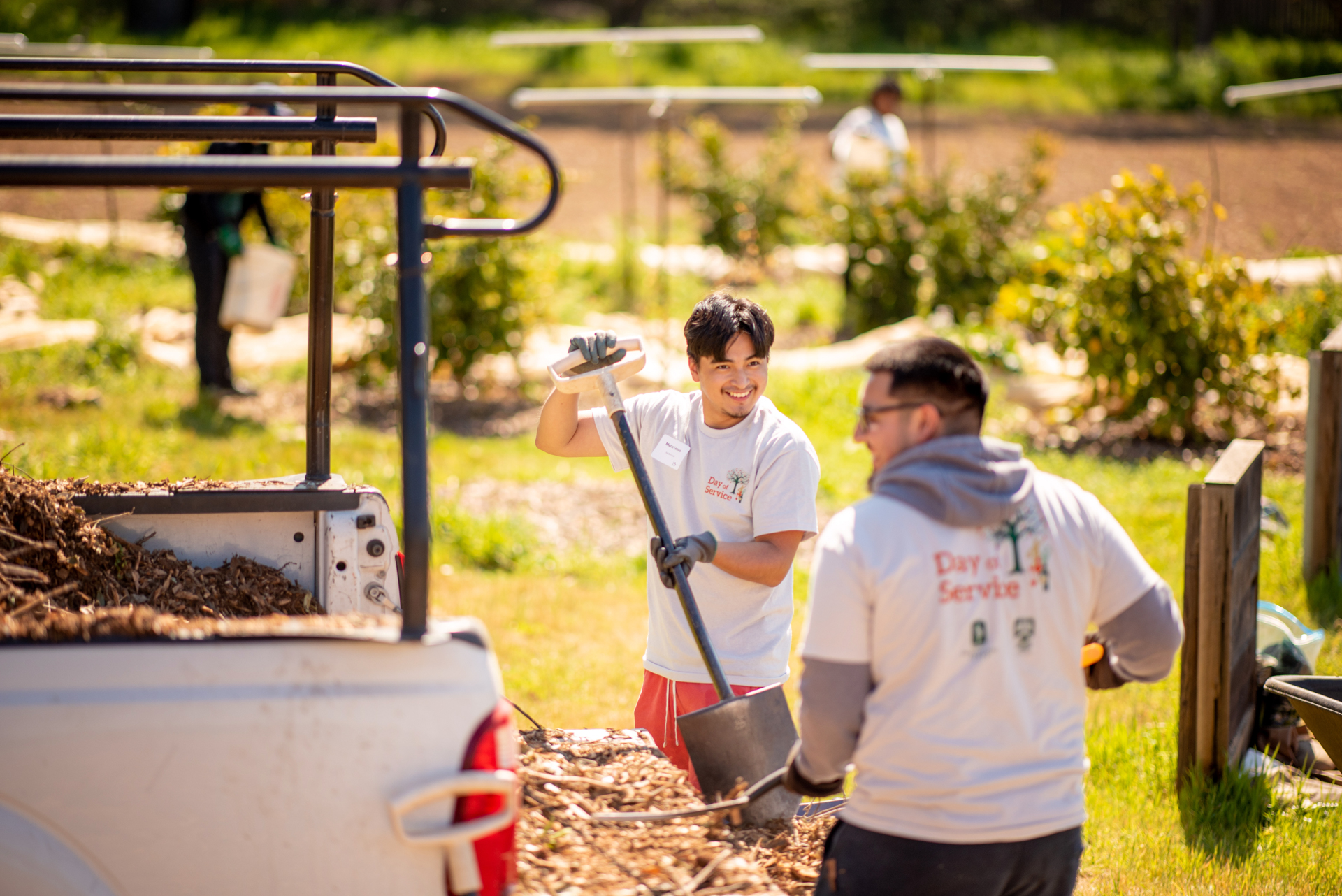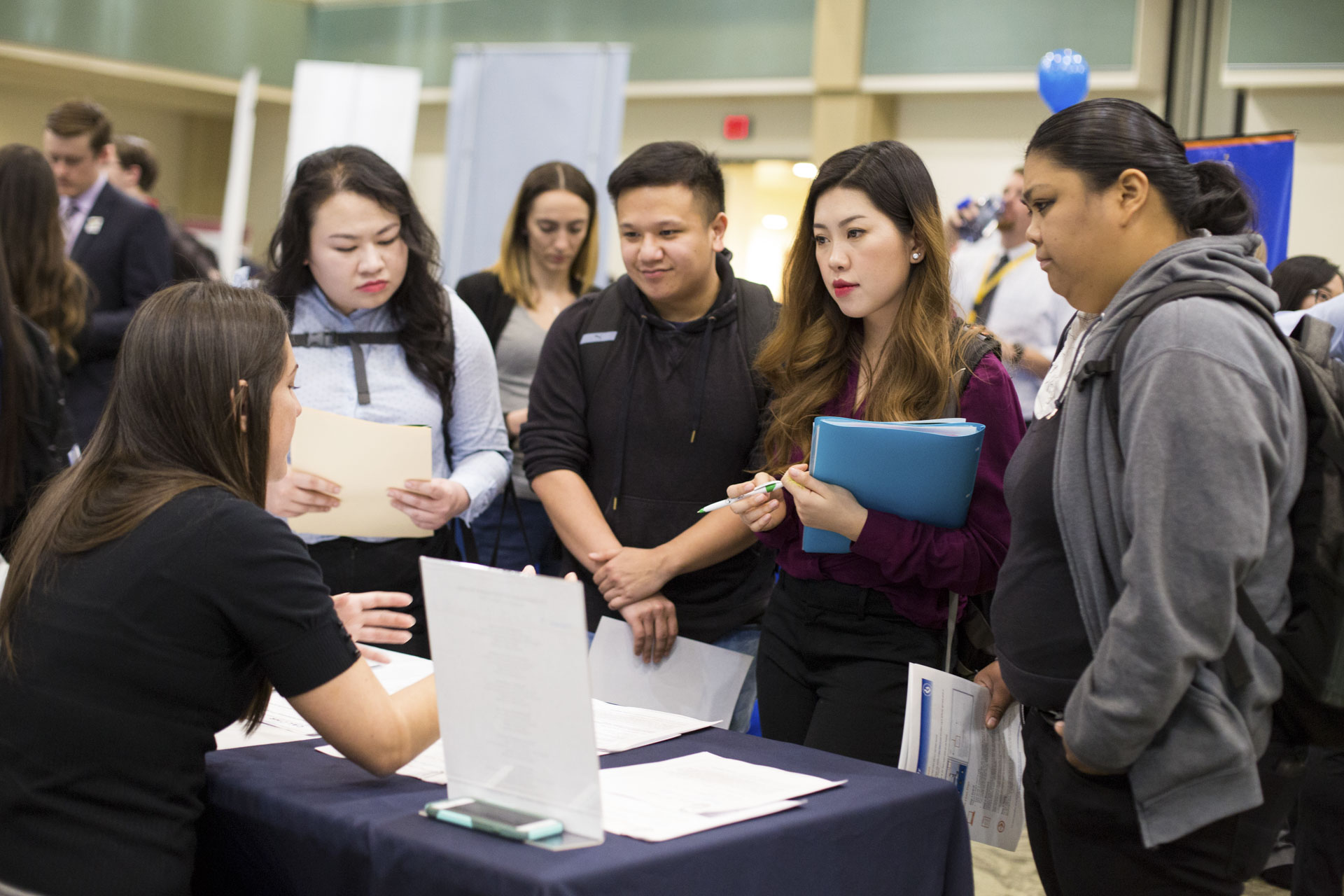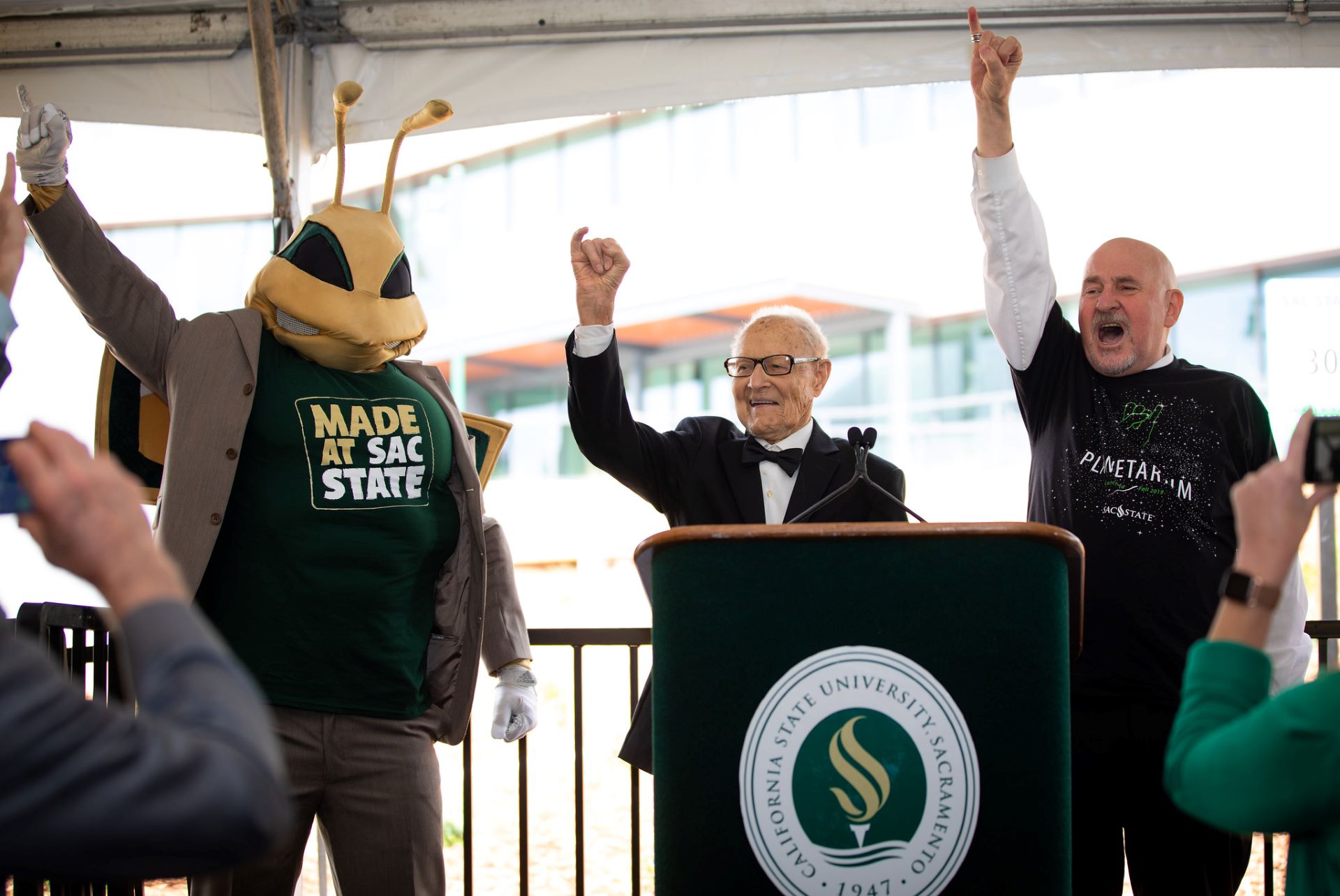Story Content
As CMC celebrates its first anniversary, Sac State’s key role in the tech innovator emerges
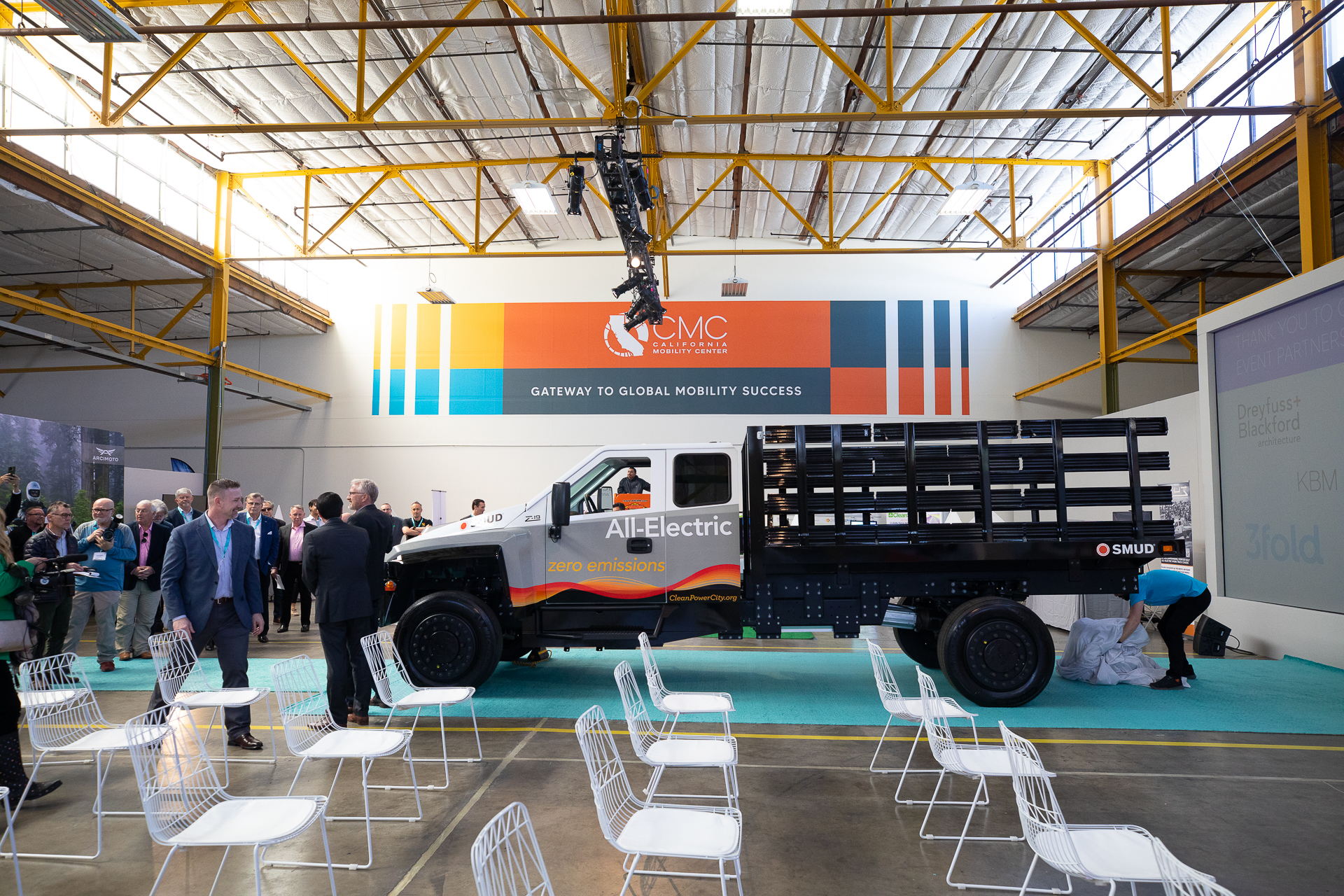
March 22, 2022
Sacramento State is helping build the “human capital” necessary to bring electric vehicles and other green technology to the marketplace more quickly as part of its key role within the ecosystem known as the California Mobility Center.
The CMC, which employs technology, academics, and political connections in an effort to achieve its goals, celebrated its first year of full operations on March 17 with a showcase at its facility inside Army Depot Park.
Sac State, one of the organization’s founding members, was front and center.
Students from the College of Engineering and Computer Science and College of Natural Sciences and Mathematics already receive direct experience developing technologies at the CMC and will help the center’s clients take their products to the public in a timely manner.
The students and their faculty mentors are helping to fuel a workforce ready to power employers in the rapidly growing advanced mobility and manufacturing sector.
Within a few years, the CMC plans to move to University property on 25 acres of land along Ramona Avenue, about a half mile south of campus.
The Sacramento State Innovation Hub will serve as “a giant incubator” for startups producing everything from zero-emission vehicles to batteries to recharge them, said Neal Best, a senior partner at CMC. The hub also will feature classroom space and a showroom that will support “students, our workforce and the overall community,” Best said.
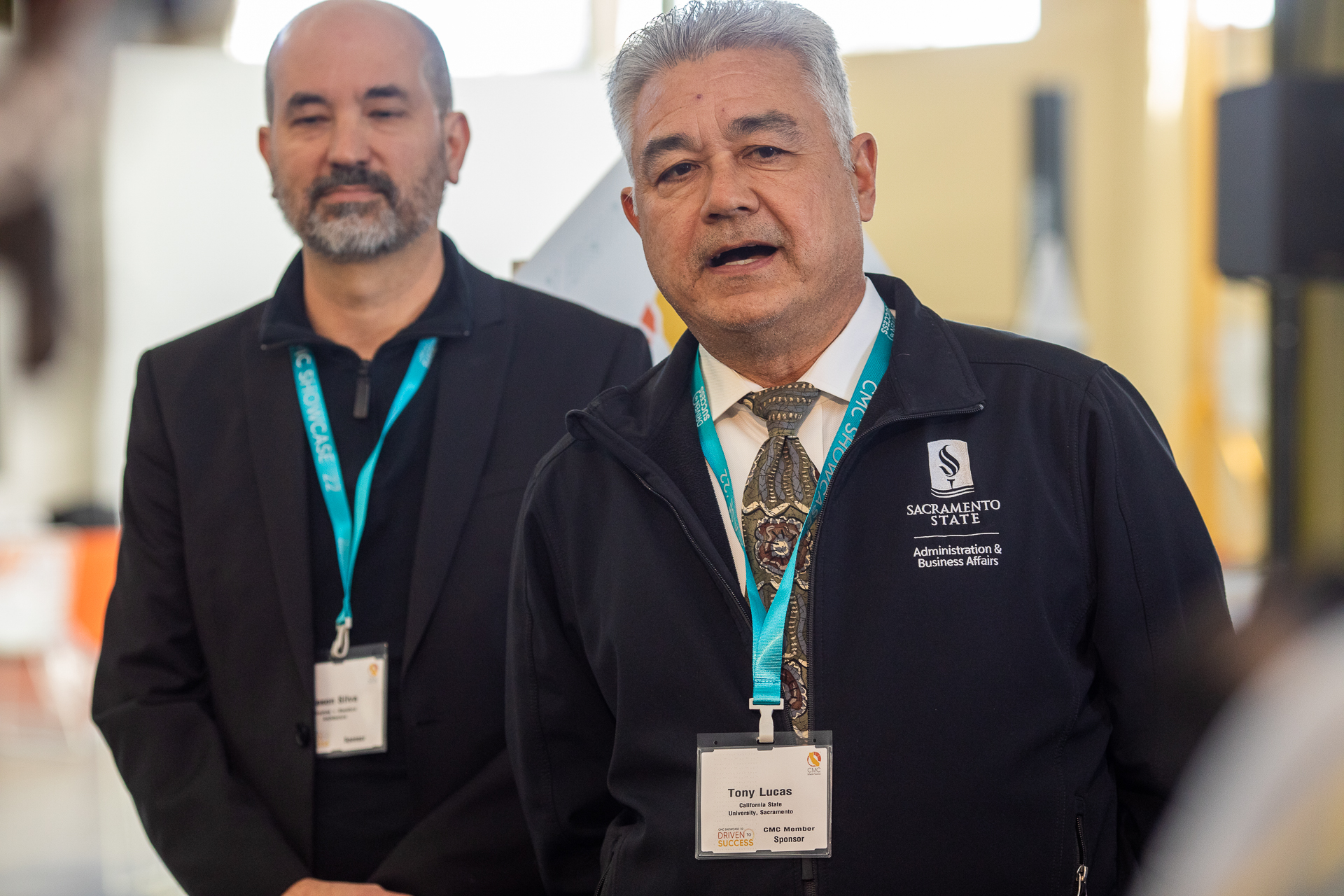
The proximity to campus and to the state Capitol made it an ideal location for the company, he said.
Tony Lucas, Sac State associate vice president for Business and Administrative Services, said the University is proud to be a key player in the project.
“Because of Sac State’s relationship with the CMC, faculty and students at the University will gain access to leading-edge facilities and equipment in support of instruction, senior projects, and research,” he said. “Students also will gain access to internship opportunities with innovators in the electric mobility and clean-energy industries.”
Sac State President Robert S. Nelsen serves on the CMC’s board of directors, and Jonathan Bowman, the University’s chief financial officer, serves as its secretary and treasurer.
Hundreds of industry leaders from around the globe, elected officials, and members of the news media attended the showcase.
The company aims to “be a catalyst to drive the whole industry” of mobility innovation, said Marc Dorfer, chief operating officer at PEM Motion, an engineering and consulting firm and a CMC founding partner.
“We have the ability to serve a magnitude of different clients at different levels of their journeys, helping them complete product development, plan business models, and test technology,” he said.
At the showcase, CMC unveiled an all-electric work truck, the first of its kind in the United States, designed for the Sacramento Municipal Utilities District, another founding partner. Also on display were a fleet of passenger cars and other vehicles powered by clean technology.
In the year since starting operations, CMC has signed on 65 member companies, with clients from around the world, said Mark Rawson, CMC’s chief operating officer. More than a dozen Sac State students, in addition to students from community colleges, have worked and interned at the Army Depot facility, he said. CMC also has factories in Canada, Mexico, and Europe.
“In a very short time, we’ve been quite busy,” Rawson told event attendees.
He said he expects the CMC’s influence to grow substantially in the coming years as it prepares to move into its permanent home near Sac State.
Thanks to support from the University, CMC “not only is shaping the future of mobility, but also the future of those who will bring it to life,” Rawson said.
Media Resources
Faculty/Staff Resources
Looking for a Faculty Expert?
Contact University Communications
(916) 217-8366
communications@csus.edu
